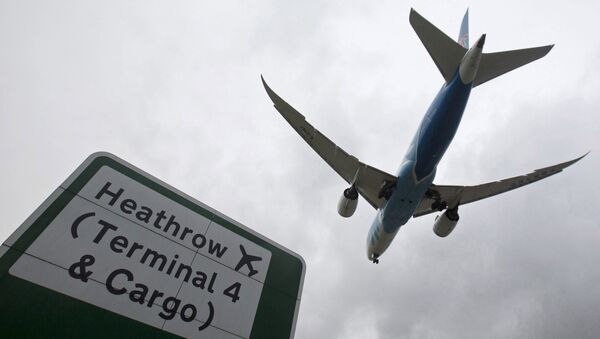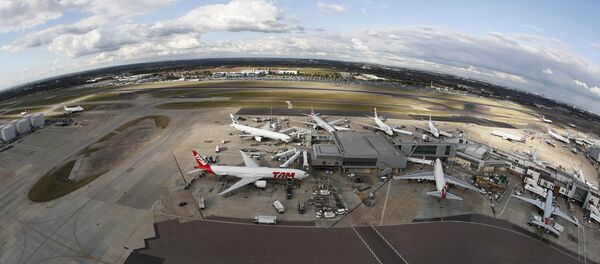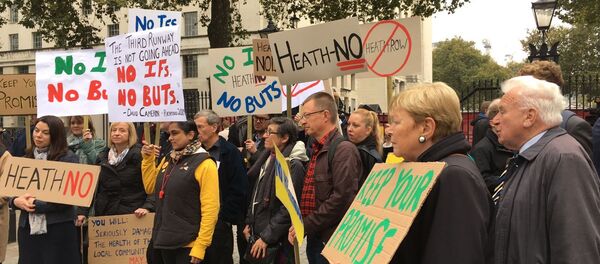"The government has already said that Heathrow wouldn't expand if air pollution limits were going to be broken, but once you've got a third runway built there's a lot of impetus to use it as much as possible. If you look at any air pollution maps then the areas in the red are of course central London and the area around Heathrow, so the government have a big challenge on how further air pollution can be dealt with if a third runway is built," Stewart said.
"We don't deny that Heathrow and a third runway will bring certain economic benefits, but our view is that the environmental and community disbenefits outweigh those," Stewart stressed.
Earlier in the day, UK Transport Secretary Chris Grayling said that his ministry understands public concerns and has held meetings with the local residents, but the approval of the new runway is dictated by national interests and economic prospects.
The UK authorities estimate that the runway's construction will increase traffic by an additional 260,000 flights a year as well as bring some 74 billion pounds ($98 billion) to the state budget over the next decades.
In July 2016, the Airport Commission's final report backed a proposal for opening the third runway at Heathrow. The project to build the third runway at London's biggest airport is estimated to require 16 billion pounds, as well as the demolition of nearly 1,000 homes. The construction is expected to begin in 2021.




